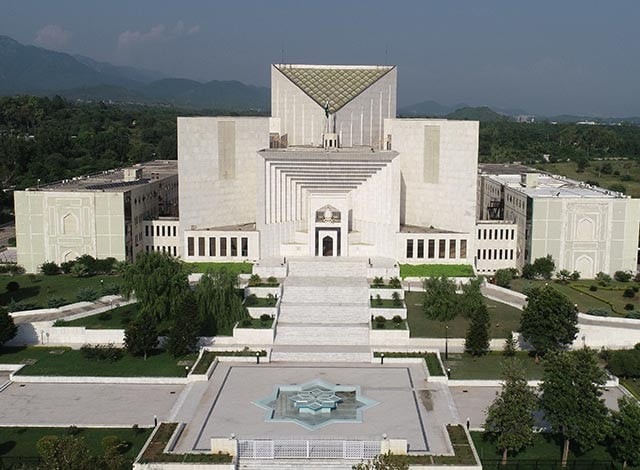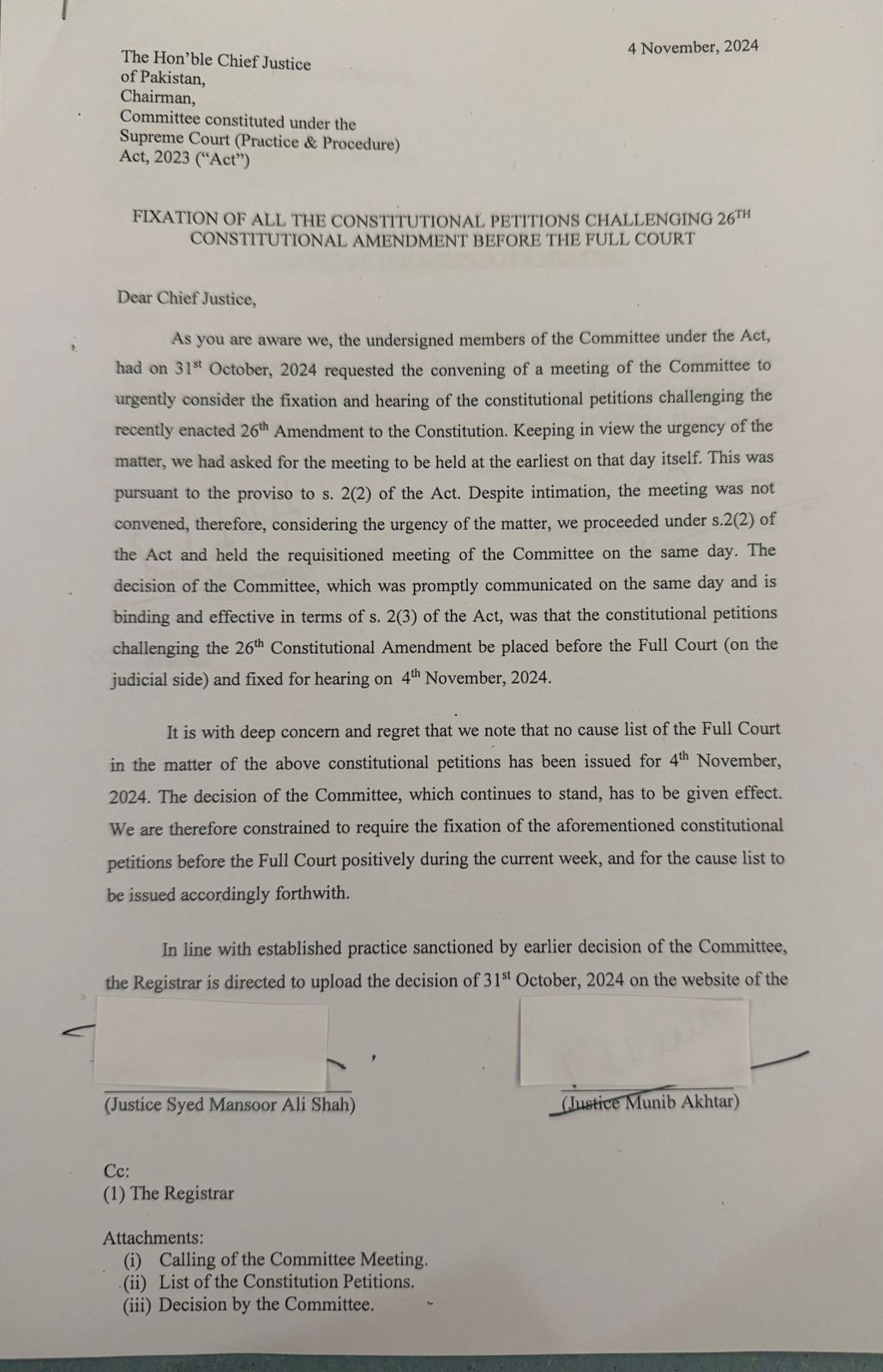SC judges urge CJP to call full court on 26th Amendment pleas
Dispute began on 31 October, when Justices Shah and Akhtar formally addressed a letter to Chief Justice Afridi

Supreme Court judges Justice Mansoor Ali Shah and Justice Munib Akhtar have urged Chief Justice of Pakistan (CJP) Yahya Khan Afridi to immediately fix hearings for the pleas challenging the 26th Constitutional Amendment.
In their letter, the two judges, who are part of the committee responsible for fixing cases and forming benches under the Supreme Court Practice and Procedure Act (2023), stated that the committee has decided to hear these constitutional petitions in a full court, with the initial hearing date set for November 4.
However, Chief Justice Yahya Afridi has refrained from convening the requested session, leading to heightened tensions within the judicial ranks.
The dispute began on 31 October, when Justices Shah and Akhtar formally addressed a letter to Chief Justice Afridi, urging him to hold a meeting under the Supreme Court Practice and Procedure Act 2023.
The two senior justices requested the meeting specifically to address the petitions contesting the 26th amendment, which involves changes to judicial authority and tenure.
With no response from the Chief Justice, Justices Shah and Akhtar held an independent meeting in Justice Akhtar’s chambers to determine the next steps.
Following this private session, the two justices decided by majority vote to bring the amendment petitions before a full court on 4 November.
Despite their decision, no cause list has yet been issued, effectively postponing any immediate hearing on the matter.
In response to the delay, Justices Shah and Akhtar sent a second letter to Chief Justice Afridi, expressing their concerns over the postponement.
They cited Section 2(2) of the Supreme Court Practice and Procedure Act, arguing that the law requires the committee to address such petitions promptly.
According to the letter, the judges had previously informed the registrar of their decision on 31 October and instructed the registrar to publish the decision on the Supreme Court’s official website.
The letter highlights the urgency that Justices Shah and Akhtar believe this case warrants, stating that “this matter impacts not only judicial authority but also public confidence in the legal process.”

They argued that the petitions challenging the amendment demand a comprehensive review by the full court, as this matter involves constitutional implications that go beyond standard judicial concerns.
Meanwhile, the chief justice’s decision to decline the meeting has underscored a growing divide within the Supreme Court. Legal analysts note that such rifts are rare within Pakistan’s judiciary, particularly on issues involving constitutional interpretation.
By refraining from convening a full court, the chief justice has, according to some experts, signaled a cautious approach to the handling of such cases, potentially seeking to avoid judicial overreach or political entanglements.
As the 26th amendment petitions await a hearing, the divide in Pakistan’s judiciary underscores the complexity and sensitivity of constitutional amendments in the country.
Justices Shah and Akhtar maintain that a full court is essential to uphold judicial transparency and ensure thorough deliberation on the matter.
With no clear resolution in sight, the dispute continues to fuel debate within legal circles and the wider public, as many await a formal response from the chief justice on whether the petitions will be added to the cause list in the coming weeks.



















COMMENTS
Comments are moderated and generally will be posted if they are on-topic and not abusive.
For more information, please see our Comments FAQ